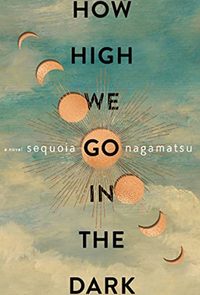
How High We Go in the Dark
Written by: Sequoia Nagamatsu
Reviewed by: Rob Leicht
Genre: Science-Fiction
Score: 4/5
How High We Go in the Dark, the ambitious debut novel from Sequoia Nagamatsu, is a certain product of the COVID pandemic. While still topical and relevant, the pandemic in Nagamatsu’s effort is different enough that neither the minutia nor tragedy of the last two years feels rehashed. And the most familiar aspects of the book are instead the things that transcend individual experience and are a part of universal human nature.
Each chapter of How High We Go in the Dark reads as a self-contained story, with the characters in each loosely and sometimes intimately connected. From beginning to end, Nagamatsu takes the reader through the progression of the Arctic Plague from its release due to melting Siberian permafrost and into the far future. As might be expected in a novel about a global pandemic, the book contains a lot of death. At times it is so devastatingly tragic and heartbreaking that it is difficult to read. Yet I found that it was often these more emotional chapters that were the most compelling. Through it all there is an undercurrent of hope. Yes, the novel is about a plague and the loss that results, but it is also about life’s many beauties, large and small, and taking comfort in one another.
Nagamatsu’s novel features characters ranging from a comedian working at a euthanasia theme park for terminally ill children, to a talking pig, to a physicist with a black hole in his brain trying to advance interstellar travel. The best chapters are sublime and inventive, others are repetitive, dragging down the middle of the book. The backdrop ranges from dystopic to pure science fiction but remains grounded throughout. Even the most “far out” aspects are eerily plausible and always relatable. The final chapter was unexpected and mostly unnecessary, but it did tie up a few loose ends.
How High We Go in the Dark is not a perfect novel, but it is imaginative and haunting; a book that remains on the mind long after finishing. Nagamatsu reminds us that there is beauty in sadness and in loneliness and all the other painful things that make us human. Life is beauty, and life is pain. You are beautiful. Thank you for reading.
Recent Comments